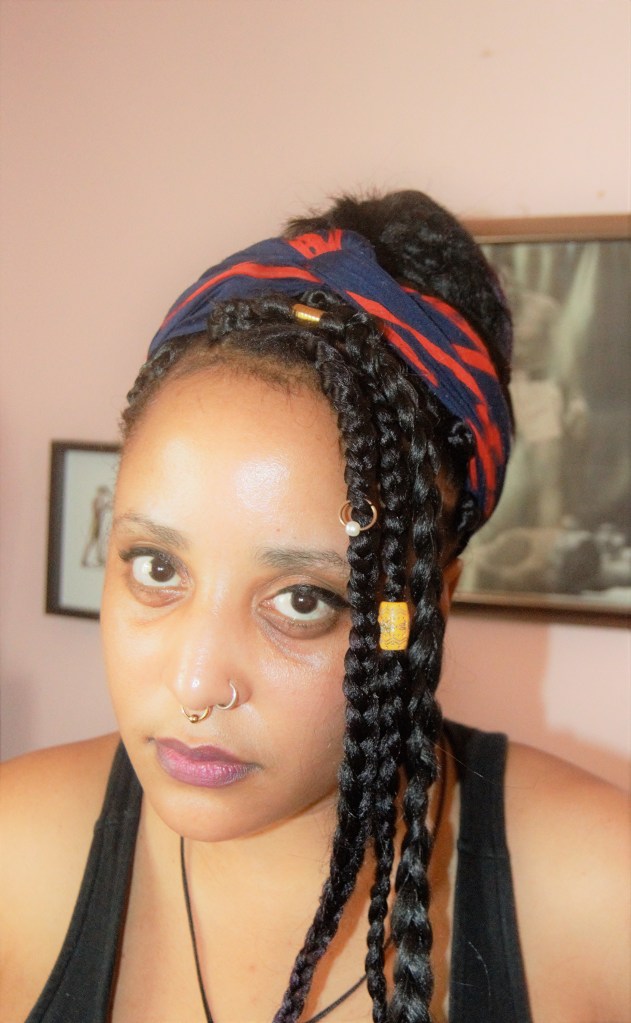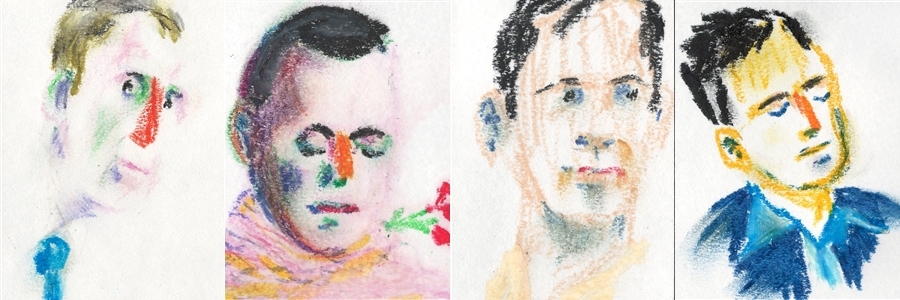As a fan of Ronelda Kamfer’s gut-wrenching poetry, I was excited by the announcement of her first novel, Kompoun (Kwela). There’s something about her writing that holds you in its thrall and instinctively I knew that whichever way she chooses to tell a story, I will be on board. And having declared my subjectivity, I, DIANE DE BEER and the author speak our minds:

With Ronelda S Kamfer you know from the first sentence the kind of story you’re about to drop into.
And if you want to know what’s happening in literature in this country, you have to read this one. As an award-winning poet, this is her first novel, but she says that she doesn’t view the writing in any way as different.
“There was never really a shift. To me the boundaries between poetry and prose are superficial. I felt the story would benefit from a longer form. I wanted to capture more detail than I usually would.
“The main differences were the technical aspects of writing a novel. Basic things like ensuring continuity and providing geographical context, etc. But I tend to keep a lot of notes anyway.
“ And that helped. With Kompoun (the title, which is explained by a dictionary entrance on o the word in the front of the book), Nadia and Xavie had a notebook, the landscape had its own notebook, and my feelings had its own little section in a bigger notebook.
“I had a very clear idea of all the different elements that would make up the book eventually,” she explains
The brilliance of the writing and the story lies in the way she catches life, colours it in so many different shades and textures that you have to keep your wits about you, and also tugs constantly at any emotional toughness you think you have.
You should know by the end of page one whether you can stomach this one and if you do, you will be gloriously enriched on many different levels. But believe me, it’s tough.
The young Nadia explains that her Uncle Empty is actually oraait. He hits his wife, but she has too few nice adults in her life to write him off. And right off the bat you take the first hit.
Telling the story is Nadia and she alternates with her cousin Xavie as they reflect on their childhood.
Readers not familiar with Afrikaaps but also the way Ronelda tells the story, will have to pay close attention when reading Kompoun. It is heart-breaking and often shattering in its pain, yet completely compulsive – and brilliant.

Ronelda’s choice of young narrators also determines how you experience the story. “We are children for such a short time. But it’s a time of our lives where we’re most ourselves in many ways,” she says. “ It’s a beautiful moment, before we start to compromise bit by bit.
“We are more selfish in little ways, but less selfish in the ways that matter most. When we’re children, we are less averse to risk, and that makes us more open, more forgiving and more honest.
“Most adults are calculating and closed off to some extent. Self-preservation becomes the dominant theme in our lives.
“Their resilience in the face of life’s disappointments made the children the ideal storytellers because the story to a large degree is about the struggle to retain your innocence and the desire to live freely, openly and honestly.”
And this is perhaps further explained in the dedication in the front of the book: All the women, who had to say sorry, even when they weren’t sorry
Musing on the difference between the novel and poetry, she felt that the novel required more stamina and concentration for a longer stretch of time. “I get bored very quickly, so my mind would trail off to other things. With poetry everything moves faster. And every new poem feels like its own thing even if it’s part of a collection.
“With the novel I was always aware that every part is a piece of the whole. That’s one of the reasons perhaps why I had to break the book down into these short fragments. So that every chapter could feel like a little project. It kept me engaged. I will always write poetry and I will continue writing novels, but I’m sure I will write other things as well.”
One of the riches of the book is the language but it also restricts the readership as your Afrikaans has to be good to get a grip on the Kaaps. But if you do, it’s like music to the ear.
And for Ronelda, it is who she is and how she expresses herself, as she explains:
“The language is very important, because the story spans across generations and different geographical spaces. It was important to represent all the different variations of Kaaps, whether it was Plattelandse Kaaps or the way it’s spoken in the Western Cape.
“Kaaps is also a very visual language, that relies a lot on metaphors. My mother died 10 years ago and my grandmother a year ago and I see the way they used language as part of my inheritance.
“With Kompoun I managed to come up with some phrases that felt like it came from their mouths. And that is probably one of the most satisfying things for me.”
And for those of us who read it, the way the language is used is such a huge part of the story, as often it hits its target with a speed and velocity that catches you unaware – but has double the impact. It’s simply not translatable.
It has been said that it feels like an autobiographical story, but when you ask Ronelda about the objective of the story, she says it was the book itself.
“I write things because I feel compelled to write them. It’s not a reaction to anything nor a statement. It’s really just the manifestation of a desire. I wanted to see these places and these characters in literature, so I expressed that,” she says.
And that’s precisely why you are drawn into the lives of these children from the start. In a South African context, it is a familiar world, perhaps harsher than many of us might imagine, but something we can understand.
I have found that the thing that excites me most in any book is originality. They say there are only a few stories to be told, but it is the way the story is told where the creativity lies. That’s true for Ronelda as well.
“I love books and films and music that give me an adrenaline rush. And I get that rush from hearing a truly original thought, or seeing something beautifully observed or understood.
“My aim as a writer is the same as my aim as a consumer of art. I want the reader’s heart to skip a beat.”
And that mine did from start to finish!
I was fascinated by the way I experienced Kompoun. While the story is devastating and, the lives of the children, especially Nadia’s beatings, emotionally and physically painful, the book is powerful rather than painful, as if by telling the story and not hiding from the truth, the children reclaim their power.
“I think Kompoun is the first book I wrote without any rage; the characters might be fighting but the story is not about rage. For me, it is about profound loss and we have all lost.
“ It is not about whiteness or patriarchy or violence. These things are a product of loss but I understand how someone might read into that first. I think it has to do with empathy, and how you relate to the unfairness of the lives of the characters.
“In some people this need to empathize causes that almost knee-jerk reaction, to look for reasons and to allocate blame. I do that all the time, but I am learning to process things slower and sit with my feelings longer.”
And then she concludes with what she wishes for readers.
“It was important to me that the experience of reading the book would conjure more than just sadness in the reader. These are strong characters who have things they believe in. I felt the character’s rebelliousness was integral to the book.
“It’s not a book about being defeated, it’s a book about emotional and psychological revolution.”
That is exactly what stays with you throughout the reading. This group of cousins, children all at the time, looked out for one another and were born into a generation that decided it was time to talk. And that made the difference. And does similar things for the reader.
If you think you might understand it and get to grips with Kaaps, no one tells a better story about these people and their lives than Ronelda S Kampher. May she never stop telling her stories – it doesn’t matter whether in poems or novels or any other way she comes up with. I will stand in the front of the line.
